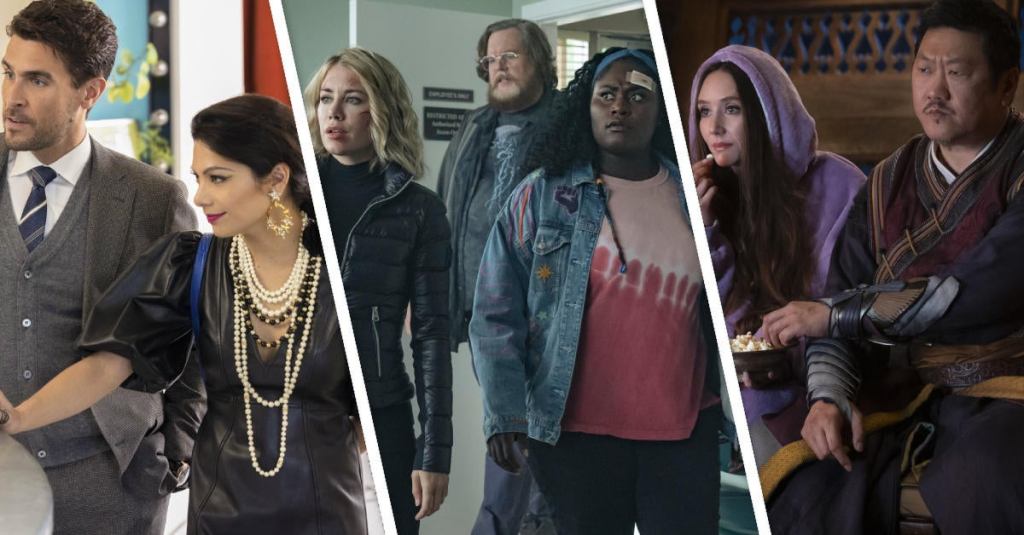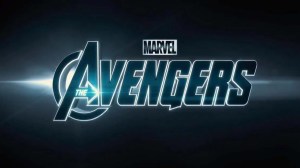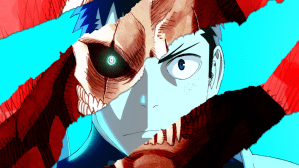If the superhero comics of the past century — and the various movies, television shows, video games, and radio plays inspired by them — have taught us anything, it’s that even the most brooding crime fighters don’t work alone. Across years and years of stories, superheroes (and even supervillains) have developed their own ensembles of side characters, whether in the form of friends, family members, coworkers, or love interests. While that concept has had a wild trajectory of its own in the comics (there are multiple instances of creators killing off or banishing a book’s supporting cast for the sake of “reinvention”), it hasn’t always effectively made its way onto the screen, with some adaptations of the past few decades boiling down any secondary characters into some combination of predictable tropes, cannon fodder, and other unrelated costumed characters.
Videos by ComicBook.com
As superhero adaptations have gotten weirder and more wide-ranging than ever, telling stories about B, C, and even D-list characters, that ethos has gradually begun to change, with an entirely new crop of compelling — and refreshingly ordinary — supporting casts popping up. Nowhere has that been more apparent than in three superhero adaptations from the past two years: DC’s The Suicide Squad and Peacemaker, and Marvel’s She-Hulk: Attorney at Law.
Yes, non-costumed supporting characters have always been a part of superhero movies and shows in some form or fashion — decades of Batman and Spider-Man reboots have helped turn characters like Alfred Pennyworth, Lucius Fox, and May Parker into household names. But there’s definitely a difference between side characters who exist to prop up the main character’s narrative, and side characters who become irreplaceable to the actual plot. The Suicide Squad highlighted that latter category in spades, with the entire plot of its gory, kaiju-filled game of life and death ultimately riding on one incredibly small thing — Flo Crawley (Tinashe Kajese) whacking Amanda Waller (Viola Davis) unconscious with a golf club, just before she could kill off the entirety of the main costumed cast. (Honestly, so much could be written just about Amanda Waller’s own significance as a powerful civilian supporting character in a world of gods and monsters, which is probably why Davis is set to return as the character in Black Adam, and a spinoff surrounding her is reportedly in the works.) Even the death of Milton (Julio Ruiz), which was largely played for laughs, still served as an accidental turning point in the chaos of The Suicide Squad‘s third act.
Peacemaker took that idea of supporting characters being significant and essentially built the entire show around it, turning The Suicide Squad veterans Emilia Harcourt (Jennifer Holland) and John Economos (Steve Agee) into reluctant teammates of Christopher Smith / Peacemaker (John Cena), alongside a cast of new, largely not-costumed characters like Leota Adebayo (Danielle Brooks). It’s impossible to imagine the show’s final fight against Project Butterfly — or the vast majority of the events of Season 1 — playing out without that exact team, and the various kooky, but capable things they each brought to the table. (The biggest joke of the finale, that Team Peacemaker was able to save the day long before the literal Justice League showed up, arguably only works because they’re a bunch of non-superpowered civilians.)
While She-Hulk‘s plot is still ongoing, we’ve seen small instances of random side characters being key parts of it, whether in Jennifer Walters / She-Hulk (Tatiana Maslany) solving a supervillain’s parole case thanks to an offhand comment from her former coworker Dennis Bukowski (Drew Matthews), or sexist comments from her various bad dates helping her win a lawsuit surrounding the She-Hulk name. All of these examples have found unpredictable, but excellent ways to advance their narratives, without defaulting to a “guy in a chair” and a crop of gadgets.
Beyond just mattering to the narratives of their respective shows and movies, this new crop of superhero supporting characters have become something special by just… being something special in their own right. Again, Harcourt and Economos were just random civilian employees of a government agency with a handful of comic appearances each before Peacemaker. But their individual storylines were so compelling that viewers were left making fancams of Harcourt and being invested in Economos’ insecurities about his “dye beard” by the season’s end. While theories have popped up around whether or not Harcourt could secretly be the daughter of someone like Sarge Steel, that possibility is far from the only thing that makes her interesting — and if it were to happen, it would only create another compelling storyline to throw her into. Compare this to some of the other superhero media of recent years (particularly a lot of The CW’s Arrowverse shows), where the vast majority of the supporting casts consisted of comic-accurate characters reinterpreted as window dressing for the main character’s story, essentially spinning their wheels until they could eventually don a superhero suit and name of their own.
Thus far, She-Hulk has had no shortage of civilian side characters with distinct, incredibly entertaining personalities — just look at how the show’s viewers have grown fond of Jen’s friends and coworkers, like the bubbly and loving Nikki Ramos (Ginger Gonzaga), and the good-natured Augustus “Pug” Pugliese (Josh Segarra). Even Mallory Book (Renee Elise Goldsberry), who only had one line of dialogue up until the show’s fifth episode, was still celebrated immediately by members of the fandom. There’s perhaps no better example of this than Madisynn (Patty Guggenheim), whose scene-stealing role as a key witness in She-Hulk’s latest court case — and the party-loving accidental new best friend of Wong (Benedict Wong) — essentially broke the Internet. Despite having some of their personality traits exaggerated for the sake of entertainment, Madisynn and She-Hulk‘s other cast members feel like very specific people you could meet and become friends with in the real world — something that still feels unprecedented to see, despite being almost fifteen years into the MCU.
Through introducing well-rounded supporting cast members, these shows and movies have also fleshed out their central superhero stories on both a personal and aesthetic level. The titular characters of both Peacemaker and She-Hulk have had something much more specific to fight for in their superhero crusade — Chris’ dynamic with Harcourt and the team adds an extra oomph to his one-on-one fight with Project Butterfly in Peacemaker‘s Season 1 finale. And while we don’t know exactly what the endgame is for She-Hulk, the thought of Jen fighting an otherworldly threat to protect her friends will definitely be in the back of some fans’ minds as she goes on future adventures in the MCU. Both of those storylines are essentially akin to the “You can’t be a friendly neighborhood Spider-Man if there’s no neighborhood” line from Avengers: Infinity War, but on a much more interpersonal scale.
This particular trio of shows and movies also find clever ways to showcase the reality of being a typical person in a superhero’s world, whether through The Suicide Squad‘s Task Force X employees placing bets on which team members are going to kick the bucket, some of those employees spreading salacious rumors about Batman and Green Arrow on Peacemaker, or She-Hulk‘s coworkers discovering the world of superhero tailors and bootleg Avengers merchandise. These moments are not only some of the most entertaining of their respective properties, but they’re relatable and honest in a way that inches us closer to the hypothetical Marvels-esque anthology about civilians’ perspectives that parts of the Internet campaign for every year or so.
Superhero stories are, at their very core, tales of ordinary people being able to do extraordinary things in extraordinary circumstances. By leaning into the ordinary of that story’s world — particularly the imperfect, relatable, and non-superpowered people within it — the recent crop of superhero shows and movies have not only given their protagonists something to fight for, but they’ve given viewers an extra reason to be entertained. While The Suicide Squad, Peacemaker, and She-Hulk are far from the first or last adaptations to deploy that tactic (I mean, just look at the fan fervor around whether or not Elden Henson and Deborah Ann Woll will return as Foggy Nelson and Karen Page in Daredevil: Born Again), they’ve each shown how effortlessly and effectively it can be done, while also bringing a sense of camaraderie and found family that hit differently after the past few years. In an age of more superhero movies and shows than ever before, these three projects have found a whole other way to keep us invested.
***
Peacemaker has been renewed for a second season, which is set to debut on HBO Max at a later date. New episodes of She-Hulk: Attorney at Law debut Thursdays exclusively on Disney+. If you haven’t checked out Disney+ yet and you want to give it a go, you can do that here.
Note: This is not a sponsored post, but if you purchase one of the awesome products featured above, we may earn a small commission from the retailer. Thank you for your support.









